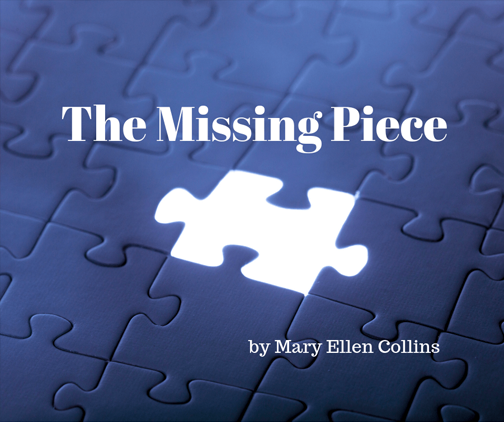By Mary Ellen Collins
Today we celebrate fathers. Fathers play a key role in the psychological development of their daughters from the moment they are born and on into womanhood. For example, fathers teach their daughters how to relate to men. Fathers help their daughters develop a strong and positive sense of self and help them build confidence in their abilities. Fathers who show respect and love to their daughters show them how they should be treated by the rest of the world.
Some of us had wonderful, heroic fathers who helped us grieve the loss of our mother, even though they were in the midst of their own grieving. They held us and let us cry and were always there for us.
Some of us had fathers who could not cope with the loss of their wives and retreated into helplessness, leaving us children to navigate life on our own. Often, we had to set aside our own grief to care for our fathers, leaving us with unresolved anger and unresolved grief.
Then there are those of us who had fathers who were emotionally or even physically absent. We not only lost our mother but our father also. The effects of this double loss are profound and haunting, turning us into tough survivors.
This is me. My father left when I was 10 years old. He chose another wife and another family. I was not his special daughter. I was only a reason to pay child support.
Then at 15, the only parent in my life—my mother—was diagnosed with breast cancer. After her surgery, I implored the doctors to explain what caused her cancer. “We think cancer is caused from an emotional trauma. It is in all of us just waiting until we break down, and then it takes over.”
My father divorced her and never looked back. She never got over his rejection. I equated the cause of my mother’s cancer with his alcoholism, womanizing, and ultimate divorce he had inflicted on her. He had killed her. My father had killed my mother. I had good reason to hate him. He not only left me, but he killed her. How can you forgive a murderer?
All during my teenaged years, I resented him. He was never a part of my life. I lived out the psychological drama of loss by being the girl in high school that every boy wanted to date. I played hard to get, and then I would make them fall in love with me only so I could drop them like a hot potato. I cannot remember how many young men I crushed, but I did it with a vengeance. Now I know that I was trying to hurt my father, over and over, and over again.
After High School, I went on to become an Emergency Room nurse. One evening while I was on duty, my dad showed up spitting up blood coupled with shortness of breath—not a good sign. I treated him like I would any other patient. “Tell me when these symptoms began, Sir.” Not dad, just sir. My training told me it was one of the three T’s, tumor, trauma, or TB. No doubt it was a tumor. He had been a smoker. He was readily admitted to the hospital.
I gathered up the courage to visit him in his hospital room not knowing why or what I would say or do. When I opened the door, I was greeted with, “What do you want?” Not a hello, not I have missed you, not I love you—all the words I wanted to hear. “How are you?” “Fine.” “Got time to talk?” “I don’t have anything else to do.” “Can we talk about us?” “There is no us.” “I am your daughter. You are my father. I have missed you for 26 years. Where have you been?” My mind raced. I want answers. I want to know why. You’ve got 26 years’ worth of explaining to do.
Silence. Silence. Then the tears. Then the sobs. I am not moved. Wow, am I calloused! I am watching a 64-year-old dying man cry his heart out and I am not moved? What is wrong with me?
Through the tears he says, I’m sorry. Out spills all the emotions he had pent up inside of him. He tells me about his childhood. He talks about his behavior and how it was wrong. He tells me about his regrets. He tells me how much he loved my mother. He tells me he had made his bed and then he had to lie in it.
“I love you.” I break down. How I wanted to hear those words for so many years and now they are here before me. Hold onto them. Don’t let go of them.
Two hours later the bitter poison I had swallowed reversed. I had received new insights. New empathy. New wisdom. It was not my fault. I forgave him and that set me free. Free from the anger. Free from the pain of rejection.
During the next few months, I visited and cared for him in his home along with his wife and kids. I did this with love. I watched God work in my dad and also in me. The hard edge dissolved in both of us. In three short months, he passed away, and I am able to cry for him.
Share if you can relate to my story. Was your father heroic? Was your father helpless? How did you cope?

